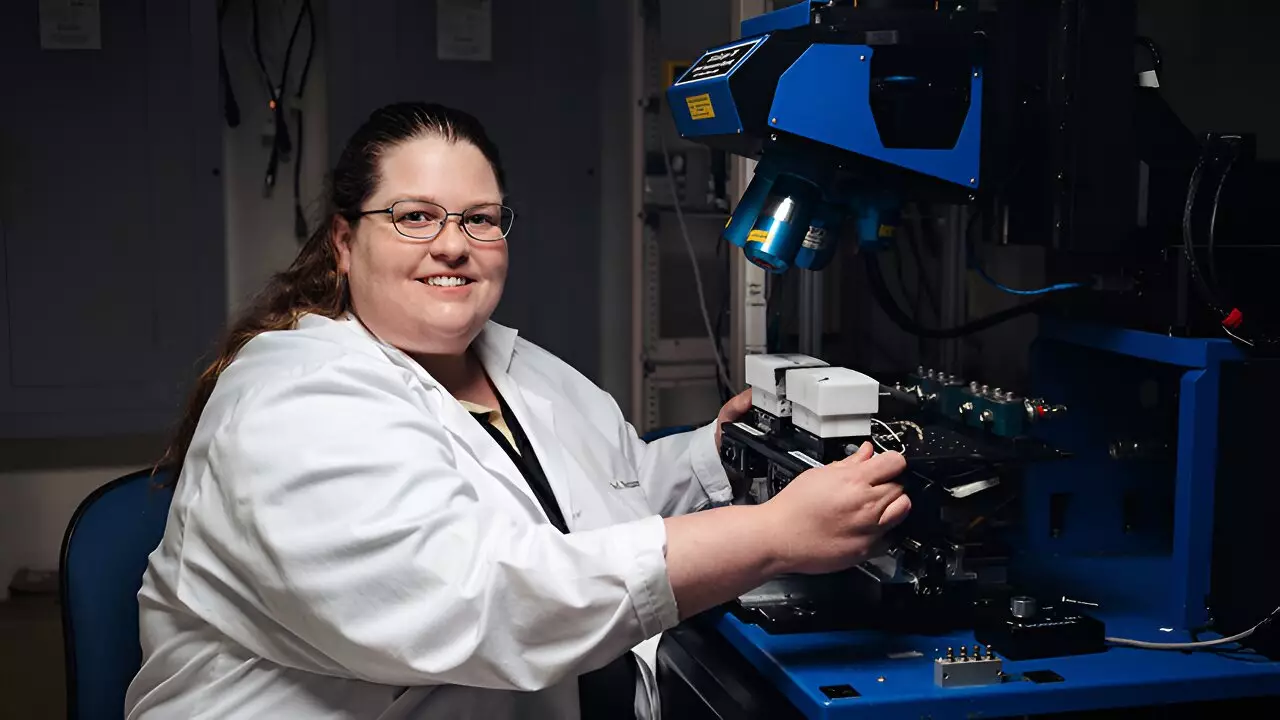As our reliance on electronic devices continues to grow, the efficient management of heat has become a pressing concern in technological advancement. From smartphones to electric vehicles, every electronic device generates heat during operation. This heat, if not effectively dissipated, can lead to reduced performance, shortened lifespan, and even failures of electronic systems. In this rapidly evolving landscape of technology, researchers like Amy Marconnet from Purdue University are exploring innovative techniques to address the critical issue of electronics cooling, aiming to enhance device performance while ensuring safety and usability.
The operational efficiency of electronic devices is heavily reliant on maintaining optimal temperature ranges. When devices operate outside their designated thermal thresholds, they tend to experience malfunctions or degraded functions. Marconnet’s research underscores the significance of thermal management, especially as devices become more compact and powerful. “On the semiconductor side, we’re mainly looking at improving thermal management to let electronics run at higher powers,” Marconnet explains. This statement highlights a dual challenge: maintaining performance levels while managing increasing heat loads.
Device design is shifting, particularly with wearables and portable electronics that come in constant contact with human skin. In these instances, precise thermal control not only protects the device but also the users, necessitating the exploration of materials that can rapidly transfer heat away from hot spots without significantly increasing device weight or costs.
One of the groundbreaking areas of Marconnet’s research involves the use of phase change materials (PCMs). These materials exhibit unique properties that enable them to absorb and release thermal energy during phase transitions. As Marconnet elucidates, phase change materials can actively mitigate heat accumulation: “So, you can have the materials be melting while you’re, say, using your VR (virtual reality) goggles.” This ability to adapt to thermal changes in real-time represents a significant leap in managing heat in electronic devices.
The investigation into metallic alloys as phase change materials offers promising avenues for maintaining a compact system while ensuring effective thermal management within chips. As graduate student Meghavin Bhatasana collaborates on this initiative, the research team is pushing the boundaries of what is currently achievable in heat management technology.
Traditional cooling methods, such as the use of thermal greases, present substantial drawbacks, including reduced efficiency over time as these materials can migrate or become less effective through prolonged usage. Marconnet’s focus on identifying alternative materials addresses this concern head-on. “We’re trying to figure out a fast test method right now for identifying which materials will perform well and which will perform poorly without having to wait for a year or more of an actual use of the system,” she states. This kind of forward-thinking approach is vital for developing reliable thermal management solutions that can be tested and used effectively in commercial applications.
Furthermore, the influence of batteries on heat generation cannot be overlooked. As charging speeds increase, so does the heat produced by electrochemical reactions within the battery—a concept Marconnet effectively likens to the heat generated by an incandescent light bulb. Both phenomena provide useful output, yet they also waste energy as heat, emphasizing the need for improved thermal management strategies that can facilitate faster charging while mitigating heat waste.
Looking ahead, Marconnet’s collaborative work with Professor Xiulin Ruan highlights the promising development of compressible foam designed to better distribute heat throughout electronic systems while offering insulation against cold. This innovation represents not just an advancement in material science but also a step toward ensuring the longevity and reliability of modern technology.
As research continues, with two papers on phase change materials currently undergoing review, the future of thermal management in electronic devices is both exciting and essential. In an era of rapid technological evolution, the quest for effective cooling solutions remains pivotal for the sustainable performance of electronics. Marconnet and her team’s pioneering efforts serve as a beacon of hope for consumers and manufacturers alike, signaling a new age of smarter, more efficient technology capable of meeting the demands of contemporary life.


Leave a Reply